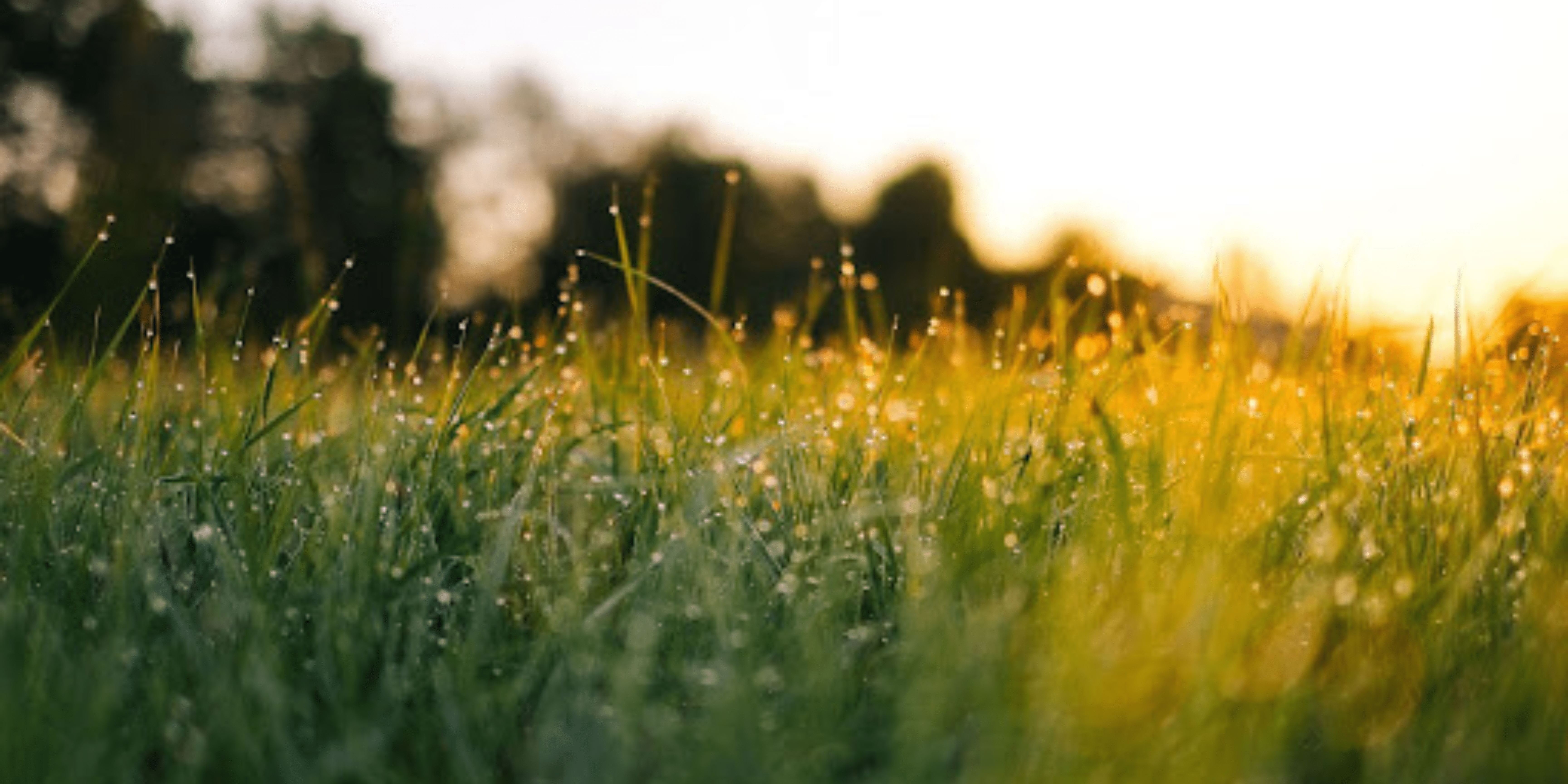The Organic Approach To Lawn Care: Maintaining A Green and Chemical-Free Yard
The desire for a lush green lawn full of grass often makes homeowners use harmful chemicals and pesticides to get the desired result. These practices not only pose a threat to you and your family but to the environment as a whole. To get the desired lawn, which is sustainable and environmentally friendly, we have suggested some organic approaches to lawn care.

Organic lawns are the ones wherein synthetic (man-made) chemicals like pesticides, fungicides, and herbicides are not used. Instead, substances derived from the residue of plants and animals are used. Examples – manure, tea compost, leaf mulch, etc.

Why organic lawn care?
1. Safe for family:
Organic lawns can become a hub for recreational activities for kids and pets. Synthetic chemicals release lots of toxins that can prove harmful to your family.

2. Environmental friendly
Eco-friendly approach towards your lawn not only benefits your family but also nourishes other living organisms in your lawn.
3. Prevents ground water pollution
The use of chemicals in your lawn can pollute groundwater by leaching into the soil. Most lawns have water reservoirs or wells, using chemicals in the lawn can contaminate water in these sources.
Tips to maintain a chemical-free yard are
1. Using organic fertilizers
Major nutrients required by plants are nitrogen, phosphorus, and potassium. We can get these three nutrients from plant and animal-based sources. Seaweed, alfalfa, and cottonseed meal are plant-based sources whereas cow, chicken, and horse manure are animal-based sources.
2. Mowing
Proper mowing is necessary for a strong organic garden. Organic lawns are mowed higher than the conventional lawns. Taller and thicker grass reduces sunlight and soil available to weeds. Mowing thick grass also means the need to water less and create deeper roots. Leaving the clipped grass after mowing on the lawn will reintroduce organic matter back to the soil after decomposition.

3. Growing clover in the lawn
With the advent of herbicides, clovers were regarded as weeds and removed from lawns. However, clover is more beneficial than harmful for the lawn, especially white clover. Clover takes nitrogen out of the air, and soil and makes it available for your lawn. Clover acts as a natural fertilizer and makes your lawn pest-resistant and healthy. Clover and dandelion attract pollinators which are necessary for building a strong and healthy organic lawn.
4. Removing weeds naturally
The most challenging problem in an organic lawn is weeds. A total eradication of weeds might not be possible to achieve at first, however, with gradual care, it can be achieved. Pulling out weeds manually is a good option. Corn gluten meal can also be used as a natural weed prevention method. Undiluted white vinegar can be sprayed directly on weeds to kill them.

Conclusion
Increasing consciousness about the environment has made organic lawns desirable among people. Concerns about the impact of synthetic fertilizers on pets, pollinators, humans, and wildlife are major driving factors behind the change. To maintain an organic lawn you need to focus on soil, overseeding the lawn for thick growth, and embracing the weeds. Routine maintenance is a must for any lawn be it conventional or organic. Obsessing over weeds, thin growth won’t solve the problem in a day. Organic lawn care requires investment in terms of time and effort.
Here are some other blogs which make your Green Space more Greener!
- Gardening Calender Blogs
- Sustainable Gifting Ideas
- Gardener Stories
- Garden Care Blogs
- Miniature Garden Decor
- Gardening Workshops
Have a look at some amazing Videos on Gardening that might help you!
- Tips on planting homegrown plants and creating art with them as a beginner.
- How to preserve, plant, and grow flower seeds in monsoon, winter, and other seasons.
- Growing different vegetables, winter vegetables especially, and tips and tricks to preserve.
- Preserving fruits such as strawberries, Papaya, watermelon, muskmelon, etc.
- Know all about microgreens using examples such as microgreen spinach, microgreen sunflower, microgreen mustard, microgreen flax, etc.
- Using gardening tools such as pots, trays, growing bags, moss sticks, watering cans, etc.
Here are some Workshops that might help you if you are new to Gardening!
- Convert your small space into a green jungle.
- How to upcycle DIY’s for home decor.
- Watch our workshop on using biochemical enzymes instead of chemicals in gardening.
- Workshop on stepping towards sustainability.
- Home remedies for saving plants against pests.


I love the idea of maintaining a green and chemical-free yard with an organic approach to lawn care. It’s not just eco-friendly; it’s healthier for my family too!
Switching to an organic lawn care approach has transformed my yard into a lush, chemical-free oasis. It’s not just eco-friendly; it’s a breath of fresh air for both my family and the environment!
Maintaining a lush, chemical-free lawn not only beautifies your yard but also benefits the environment. The organic approach to lawn care is a win-win for both your landscape and the planet!
I absolutely love the organic approach to lawn care! It’s fantastic to see that more and more people are realizing the benefits .
I love the idea of maintaining a lush, chemical-free lawn! It’s not only eco-friendly but also healthier for our families and the environment